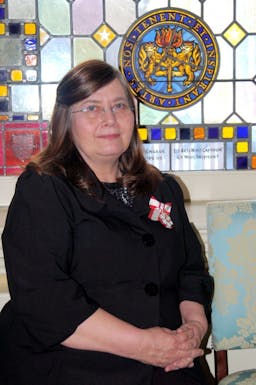Each woman’s voice carries an individual experience that is a critical piece of the global message
Jan 21, 2015
Story
Each woman’s voice carries an individual experience that is a critical piece of the global message
I was raised on a small farm in Ontario Canada along with nine other sisters and three brothers. Our family was very hardworking and lived a life largely governed by seasonal tasks assigned to particular times of the year. My father was an amazing man, steeped in a strong work ethic and sure in the knowledge it was his responsibility to provide for his family and if it was needed help out when others struggled. Self-reliance and personal responsibility were the two key qualities he admired the most, personality traits I felt the least able to meet.
My mother appeared to be the direct antithesis of my dad. In my mind, she was dark, dangerous and vicious. A tyrant who wielded her rage precisely, like scythe, stripping a ripe field of its harvest leaving behind heap of useless chaff. A person I loved, but feared absolutely. Her persistent, soul-stripping characterizations combined with sexual abuse I suffered at the hands of relatives drove me into a world of silence. Invisibility and staying quiet were the keys to survival.
It was against that backdrop that as a young girl I left my community and family and hitchhiked to Canada’s Northwest Territories with the unrealistic expectation I could escape my childhood. I was homeless, unemployed, immobilized by fear, inappropriate and erratic in my behaviour and suicidal. I was extremely needy and latched onto any person that showed me kindness entirely reliant on them for my very existence. It was in this community I connected with women who had faced similar experiences, although as First Nations and Inuit women theirs was rooted in the devastating impact of colonization and systemic violence that continues today.
The connection turned into a 30-year journey of mutual growth and recovery. We found our voices together, one helping the other to speak out against oppression and human rights violations we saw around us everyday, particularly targeting Indigenous women in the North. It was clear though, our voices alone weren’t enough to penetrate the deeply entrenched power structures of the status quo that still marginalize First Nations, Inuit and Metis women in Canada. Success depends on joining forces with other Indigenous women who face similar challenges in their homelands and building alliances with sisters from other nations. Voices of Our Future creates a venue for that discussion to happen and provides us with opportunities to strengthen our communication and media skills which is so essential to our work.




